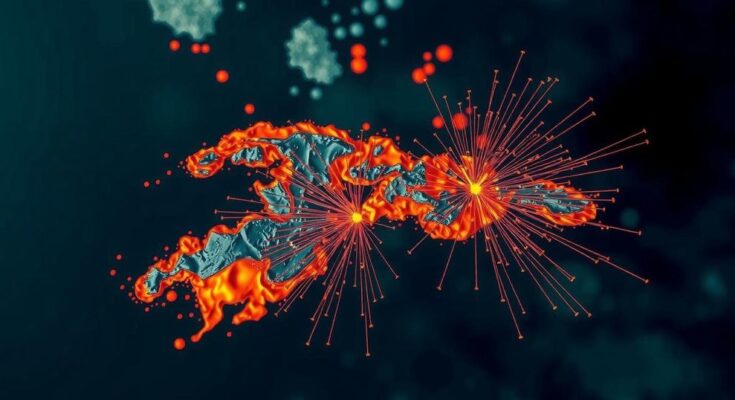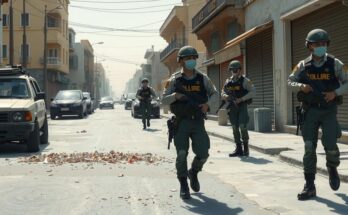A 6.8 magnitude earthquake struck eastern Cuba amid post-hurricane recovery, causing tremors felt in large cities without immediate reports of major injuries or damage. The earthquake adds to Cuba’s recent hardships, following Hurricane Rafael that left many without power and hundreds of homes destroyed.
On Sunday, a significant earthquake with a preliminary magnitude of 6.8 struck eastern Cuba, following a series of hurricanes and widespread blackouts that have adversely affected the island. The U.S. Geological Survey indicated that the epicenter was located approximately 25 miles south of Bartolome Maso. Tremors were felt throughout eastern Cuba, impacting major cities such as Santiago de Cuba, Holguin, and Guantanamo. Despite the intensity of the quake, initial reports did not indicate any major damage or injuries. Residents in Santiago expressed their concerns and fear, with one local, 76-year-old Yolanda Tabío, reporting that many people evacuated to the streets and nervously awaited further developments. She recounted experiencing at least two aftershocks following the main tremor. “You had to see how everything was moving, the walls, everything,” she remarked. Additionally, individuals in Pilon shared through social media about minor damages, showcasing images of compromised roofs and cracks in aging structures, a not-uncommon occurrence in Cuba due to its older infrastructure. This seismic event occurred amid ongoing difficulties for the Cuban populace, as it came shortly after Hurricane Rafael, a Category 3 storm that caused extensive power outages and destruction of homes throughout the country. Many citizens were still grappling with power restoration efforts after weeks of blackouts related to the island’s ongoing energy crisis, which has induced public discontent and sporadic protests across the region.
Cuba has faced significant challenges recently, including a series of natural disasters and infrastructural issues. The recent 6.8 magnitude earthquake adds to the island’s troubles, having already been impacted by Hurricane Rafael, which inflicted considerable damage and power outages. Historically, Cuba’s old buildings and energy crisis exacerbate the effects of such natural occurrences, leading to a heightened sense of vulnerability among the population. The cumulative impact of these events reveals the ongoing hardship faced by many Cubans, fueling public unrest and protests as they navigate through these unprecedented difficulties.
In summary, the recent 6.8 magnitude earthquake underscores the ongoing hardships faced by Cuba following a sequence of hurricanes and power crises. Though initial reports suggest no major damage or injuries, the psychological impact on the residents and their vulnerabilities due to the deteriorating infrastructure remain significant. The combination of natural disasters and systemic challenges continues to threaten stability on the island, highlighting the urgent need for comprehensive disaster preparedness and infrastructural improvements.
Original Source: www.wmar2news.com




